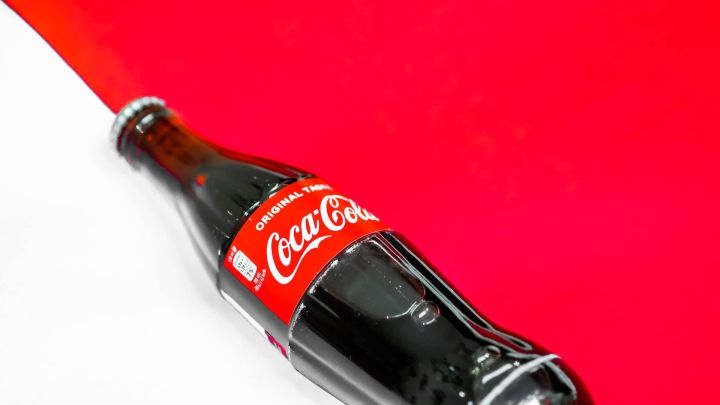It is not clear exactly how much cola you have to drink and for how long before it causes osteoporosis. However, as osteoporosis is influenced by a number of different factors, it would be a rather one-sided interpretation to simply assume that drinking cola will cause osteoporosis. However, even so, cola is a high sugar and calorie drink, and excessive daily intake can have many other negative effects, so moderate consumption is recommended.

One of the reasons why Coke is so popular with young people, and which some people are concerned about, is that drinking it can lead to osteoporosis. So, what exactly is osteoporosis? What are the common causes of osteoporosis? Can drinking cola really cause osteoporosis? What can I do to prevent osteoporosis?
What is osteoporosis?
Osteoporosis (OP) is a systemic bone disease characterised by reduced bone mass, impaired bone quality and reduced bone strength, leading to increased bone fragility and susceptibility to fracture.
Osteoporosis can occur in different genders and ages, but is more common in post-menopausal women and older men. There are two main types of osteoporosis, primary and secondary, and the following deals mainly with primary osteoporosis.
What are the common causes of osteoporosis?
Osteoporosis is influenced by both congenital and acquired factors.
Congenital factors refer to race, gender, age and family history.
Acquired factors include medications, diseases, nutrition and lifestyle. Of these, nutrition plays an important role in the development of osteoporosis, with calcium, vitamin D, protein and energy, as well as phosphorus, magnesium and trace elements and vitamin C and vitamin K known to be associated with bone health.
In addition, smoking, excessive alcohol consumption, excessive intake of coffee, carbonated drinks and salt are also dietary risk factors for osteoporosis.
Can drinking Coke cause osteoporosis?
The main components of cola associated with osteoporosis are phosphoric acid and caffeine.
Phosphoric acid.
Phosphoric acid is the source of the sour taste of cola. Amongst other things, phosphorus is an essential macronutrient which, like calcium, is an important component of bones and teeth.
It has been suggested that if too much phosphorus is consumed over a long period of time, the calcium-phosphorus balance mechanism can be compromised, which can be detrimental to bone metabolism and the prevention and treatment of osteoporosis.

Especially for sensitive groups, such as young people during growth spurt and elderly people with reduced calcium absorption and retention, intake of high phosphorus diet may cause hypocalcaemia and secondary hyperparathyroidism which promotes bone resorption, accelerates bone loss, reduces bone mass and may be a trigger for osteoporosis to some extent.
In fact, for adults aged 18-49 years, the recommended daily intake of phosphorus is 720 mg, up to a maximum of 3500 mg (the "tolerable maximum intake" value).
One can of Coke (330 ml) contains 33 mg of phosphorus, which is only 4.6% of the recommended daily intake of phosphorus and is more than 100 times different from the maximum intake of 3500 mg. In addition, 1 can of Coke contains less phosphorus than drinking 100 ml of milk (73 mg of phosphorus), or eating 1 tael of lean pork (95 mg of phosphorus), or 1 tael of tofu (60 mg of phosphorus), or 1 egg (65 g of phosphorus).
Caffeine.
In addition to phosphorus, caffeine is also an important factor in calcium absorption.
Caffeine belongs to a group of chemicals called methylxanthines, which are usually found in drinks or foods such as coffee, strong tea and chocolate, and if consumed in excess can have a mild diuretic effect, increasing the excretion of calcium in the urine. As a result, people who drink large amounts of strong tea and coffee are also at a relatively high risk of developing osteoporosis.

In fact, both phosphorus and caffeine need to be consumed in certain amounts in order to be harmful to human bone health. We do not yet know exactly how much cola to drink and how long to drink it for it to cause osteoporosis.
What can I do to prevent osteoporosis?
Eat a balanced diet
Increase the intake of calcium and moderate protein in your diet and eat a low salt diet.
Of these, calcium intake plays an irreplaceable role in preventing osteoporosis.
Milk and its products are the best source of dietary calcium. Beans, nuts, small fish and shrimps that can be eaten with bones, shellfish, fish, eggs and certain dark green leafy vegetables can also be a source of calcium.

If you have difficulty getting enough calcium through your diet, you can also take calcium supplements under the guidance of your doctor.
It is also important to avoid smoking, alcohol (it is recommended to limit alcohol consumption to 570 ml of standard beer, 60 ml of white wine, 240 ml of wine or 120 ml of aperitif per day), excessive caffeine (coffee with milk is recommended) and high phosphorus drinks.
Moderate exercise
Exercise makes bones stronger and also helps to increase the body's responsiveness, improve balance and reduce the risk of falls.

Exercise should be planned during the day, such as walking, jogging, cycling, swimming and dumbbells. The amount of exercise should depend on your own situation. A slight sweat and a general feeling of well-being after exercise is appropriate, but if you are very tired after exercise, it is too much and should be done gradually.

Increase sun exposure
Regular exposure to sunlight is important for vitamin D production and calcium absorption. An average of at least 20 minutes of sunlight per day is recommended for normal people.
